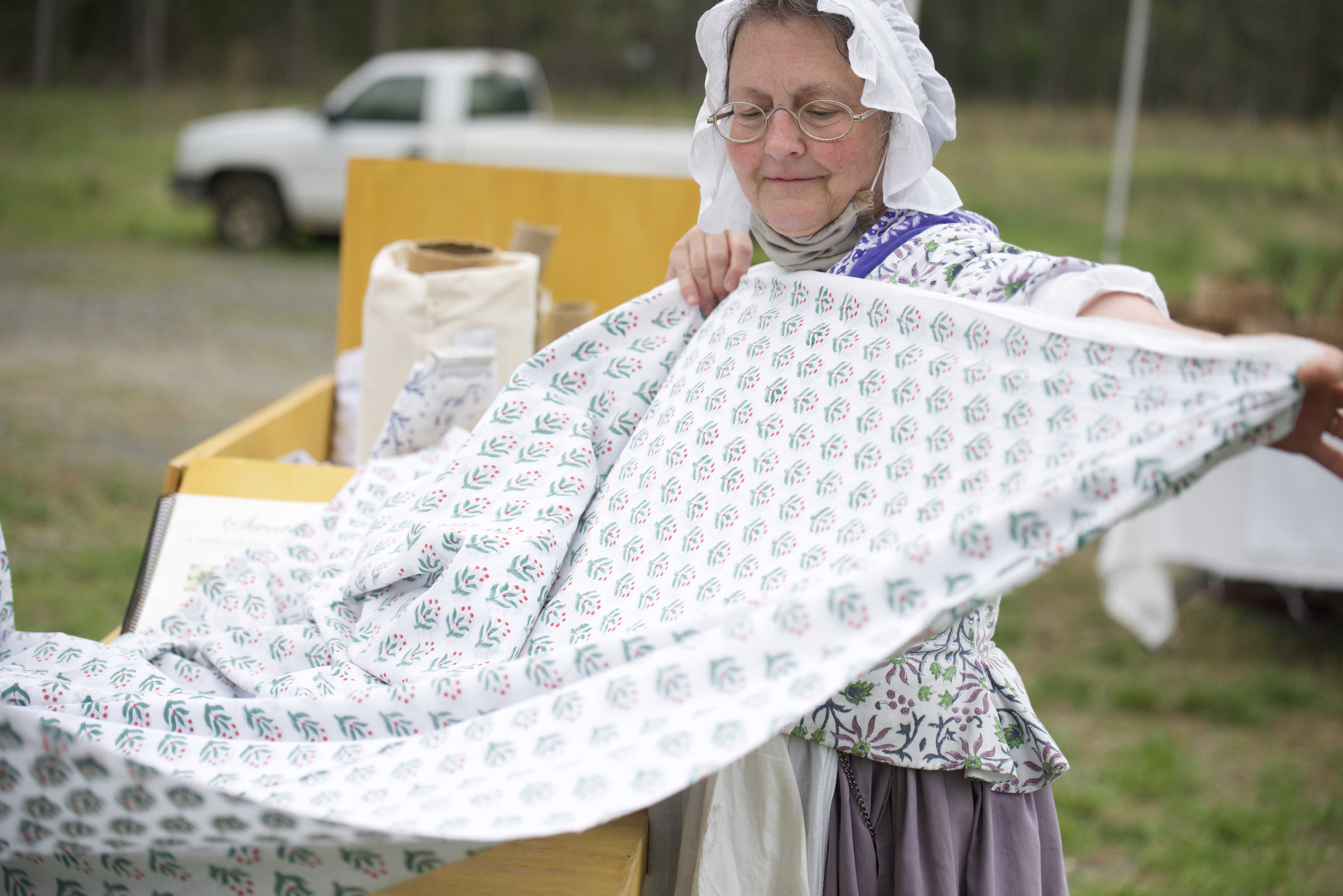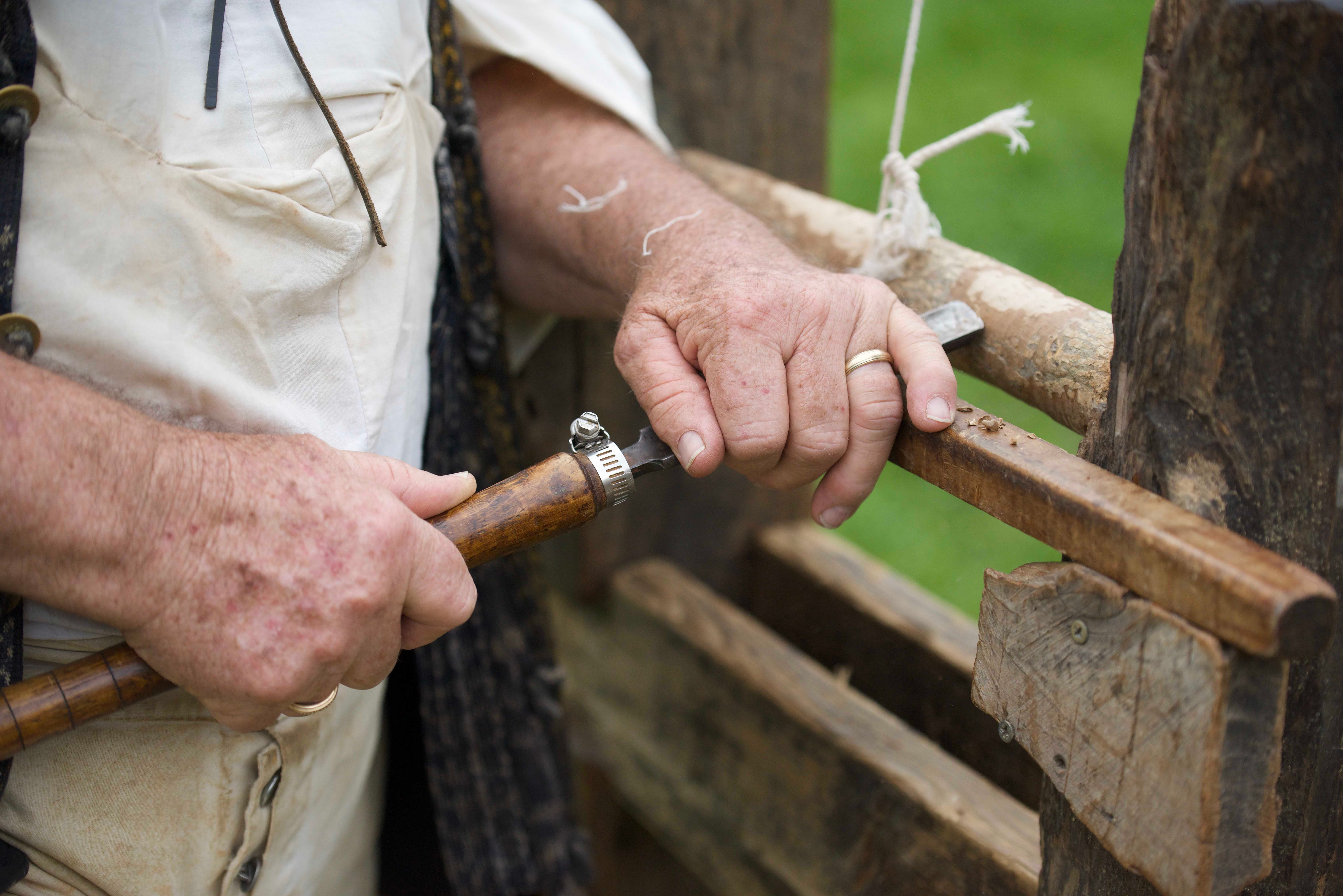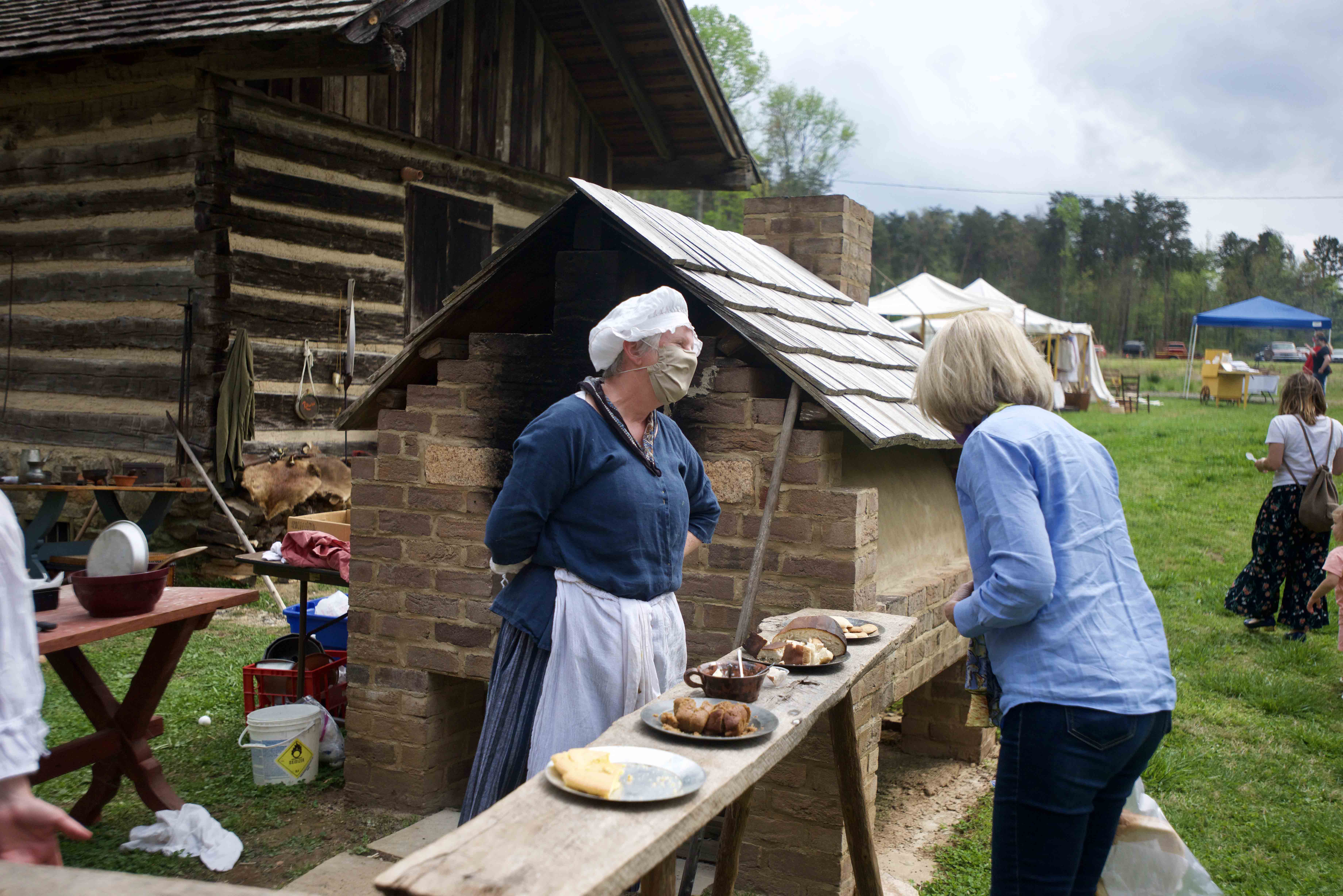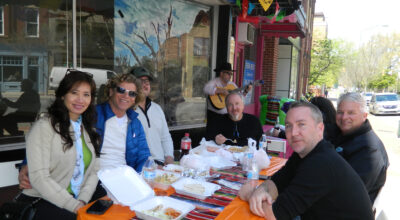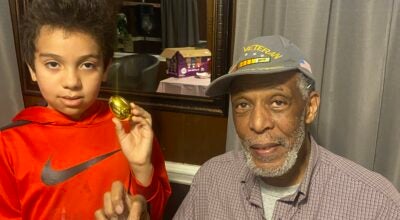Colonial Spring Frolic makes a comeback to kick off museum’s year
Published 12:05 am Sunday, April 11, 2021
GRANITE QUARRY — The Old Stone House was in good company on Saturday, surrounded by colonial crafts and attire to match the pre-revolutionary landmark.
The house was quiet this time last year because the Rowan County Museum canceled its annual Spring Frolic in the early days of the COVID-19 pandemic. This year, it was back and drew quite a few re-enactors.
“This year, we actually had more demonstrators than usual,” said Rowan County Museum Executive Director Aaron Kepley.
The museum connected with Southeastern Civilian Living Historians, and Kepley said they turned out in force. On Saturday, people could see traditional woodworking, yarn dying, fire oven baking, flax breaking as well as tour the inside of the house.
“We show what life was like,” said re-enactor Janet Pyatt. “It’s living history. We wear the clothes, we dye the colors, we eat the food, we cook the food, we do the skills and we do the chores. That’s how our ancestors lived, and all of that is a part of us today whether we’re aware of it or not.”
Pyatt, who owns the Backcountry Peddler on Main Street, said her relationship with the museum goes back to before she lived in the area. Former museum Executive Director Kaye Hirst found Pyatt set up in her merchant tent at a Battle of Guilford Courthouse reenactment.
Getting almost anything in the 18th century has some special processes behind it. Cleaning up from cooking demonstrations was kept authentic as well. To clean cookware, you need hot water, and William Young was washing with water heated over a fire. That fire had to keep going and needed steady fuel just to keep the supply of water hot.
Gaines used traditional dyes to add color to yarn. Matter, logwood and fixing agents were all used in copper pots over a fire to infuse the yarn. She also displayed some stockings dyed yellow with turmeric she dyed at a November work shop.
Gaines said she is fascinated with fiber in all forms and the process of making clothing.
“This is a history that was ignored,” Gaines said. “Women’s history was not written down. Women’s history is a process of the things we did, and because it wasn’t written down the only way we could understand the lives they lived is by doing it.”


